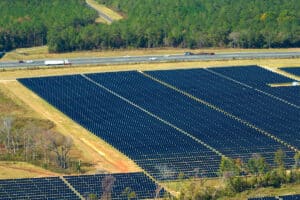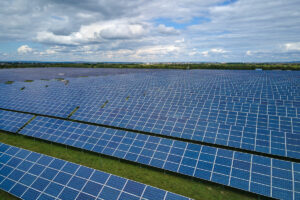In recent years, ESG investing has experienced rising popularity because more people are seeking out sustainable investments from companies whose values align with their own. ESG stands for environmental, social and governance. ESG reporting is a tool that rates and scores companies based on these criteria so that potential investors have a more transparent understanding of the company. Exactly what ESG reporting is and how it works are outline below.
What is ESG reporting?
ESG reporting is a disclosure of company data that measures environmental, social and governance factors to generate a score. Environmental factors include a company’s carbon emissions, air and water pollution, deforestation, green energy initiatives, waste management, and water usage. Social factors include employee and gender diversity, data security, customer satisfaction, company sexual harassment policies, human rights nationally and abroad, and fair labor practices. Governance factors include diversity of board members, political contributions, executive pay, large-scale lawsuits, internal corruption, and lobbying.
ESG reporting is done with the purpose of dictating the sustainability and corporate social responsibility of a company to potential investors. It is important for investors to be aware of these factors and a company’s ESG score in order to avoid investing in companies that pose financial risk because of their environmental, social or governmental practices.
How is ESG calculated?
ESG is calculated using a variety of methodologies; there is no one authority on the correct way to calculate ESG scores. Each different ESG rating provider has their own unique method, different indicators that matter to them, and acquires company data in their own way. For example, one of the largest independent providers of ESG ratings, MSCI ESG Research, uses data from company disclosures and government, academic and NGO databases. The Dow Jones Sustainability Index, another provider of ESG ratings, uses an industry-specific questionnaire to gather a company’s self-reported data.
Companies can fall within four ESG scoring ranges, the first, second, third and fourth quartile. Scores ranging from 0-25 are within the first quartile, and indicate relatively poor ESG performance and not enough transparency when it comes to publicly reported ESG data. The second quartile is made up of scores greater than 25 and equal to or less than 50 indicate relatively satisfactory ESG performance and moderate transparency regarding public ESG data.
Scores ranging from greater than 50-75 are within the third quartile. This quartile indicates a relatively good ESG performance and an above average degree of transparency. Scores ranging from than 75-100 make up the fourth quartile and indicate relatively excellent ESG performance along with a high degree of transparency in publicly reported ESG data.
In ESG reporting, scores between 50 and 70 are considered to be average or neutral. A score over 70 is considered good and indicates that a company values ESG practices. Click here to read more about the ESG scoring ranges or if you would like to enter a company name and find out its ESG score.
Looking to improve your company’s ESG score?
Is your company looking to improve its ESG rating and become a more attractive investment? Partner with EnergyLink to bolster your rating within the environmental sector. Our team of experts has the capability to design, build and fund a project custom to your company’s needs that will achieve green energy initiatives. Implementing renewable or energy efficiency technology can go a long way towards reducing your company’s emissions and raising your ESG score. To get started, click the link below and submit a request to our team. If you would like to speak with a team member directly, dial (866) 218-0380.






